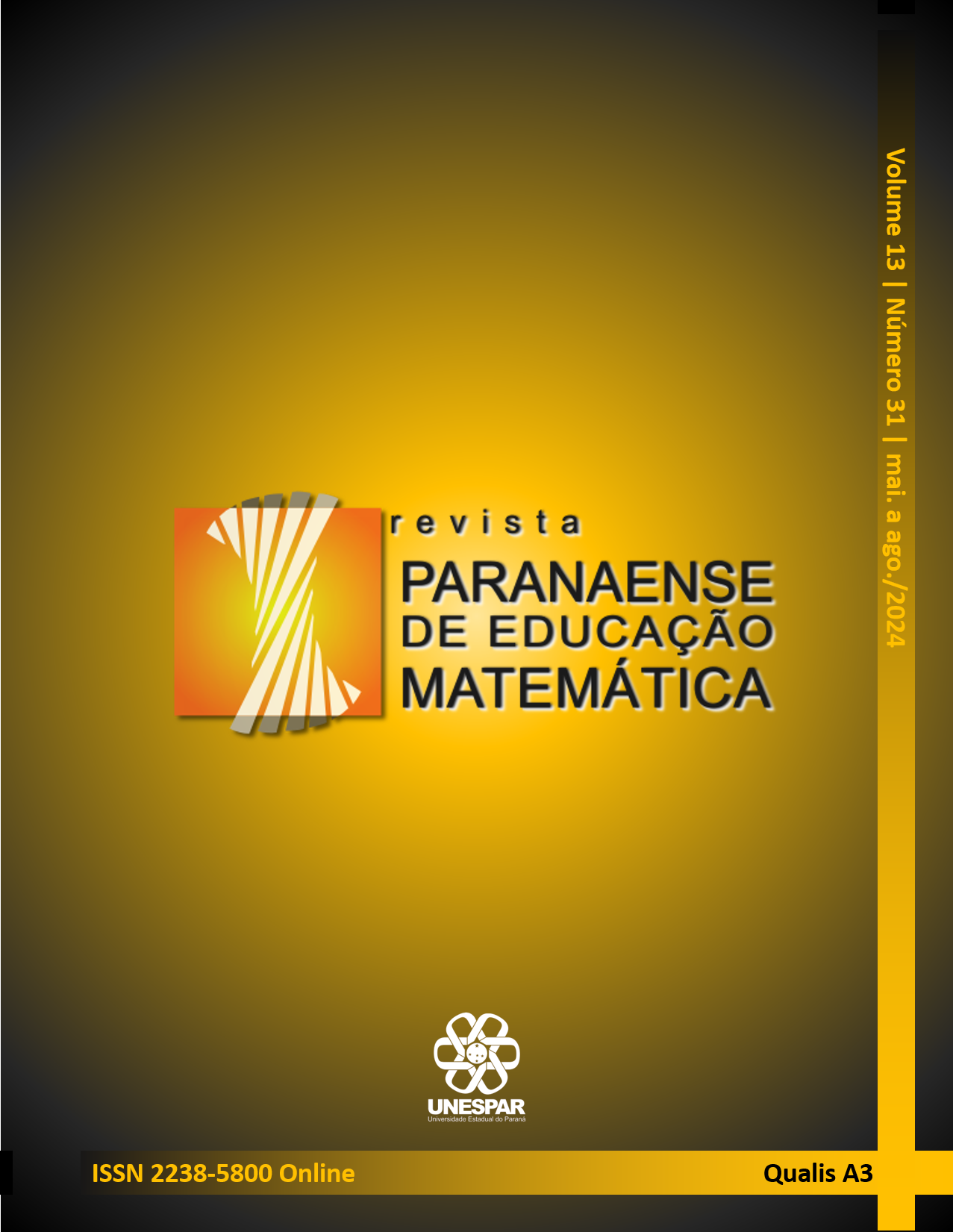Argumentação, Demonstração e Complexidade
impactos nas identidades de Matemáticos e de Professores de Matemática
DOI:
https://doi.org/10.33871/rpem.2024.13.31.8970Resumo
A investigação descrita nas páginas a seguir é de cariz teórico. Volta-se para a possibilidade de transformações nas identidades dos matemáticos e dos professores de matemática. Matemáticos e professores de matemática (escolar e universitária) diferenciam argumentar de demonstrar, vinculando a argumentação mais à matemática elementar ou escolar, e a demonstração mais à matemática científica ou acadêmica. Contudo, argumentar e demonstrar não se restringem, quanto às suas características, a processos distintos. Argumentação e demonstração são contrastantes, sim, e até opostas; porém, fazendo-se uso de uma lógica não aristotélica, pode-se afirmar que, além de oporem-se, argumentação e demonstração completam-se: trata-se do princípio complexo dialógico. Outros dois princípios complexos a que também se recorre, neste trabalho dissertativo, para lidar com argumentação e demonstração, são o recursivo e o hologramático. Crê-se que discussões epistêmicas no sentido aqui recomendado, abrangendo docentes e discentes, nos âmbitos escolar e universitário, contribuam para alterar a concepção acerca dos papéis que a argumentação e a demonstração desempenham nas dinâmicas matemáticas, estimulando modificações nas identidades dos matemáticos e dos professores de matemática (elementar e acadêmica).
Downloads
Referências
BECCHERE, M.; GRUGNETTI, L.; PUXEDDU, S.; USELLI, E. Argomentare e dimostrare... una problematica “interdisciplinare”. In: GRUGNETTI, L.; IADEROSA, R.; REGGIANI, M. (Eds.). 1996, p. 51-61.
BOTELHO, J. F. A odisseia da filosofia: uma breve história do pensamento ocidental. São Paulo: Maquinaria Sankto Editora e Distribuidora Ltda, 2021.
D’AMORE, B. Elementos de didática da matemática. Tradução de Maria Cristina Bonomi. São Paulo: Livraria da Física, 2007.
DUBAR, C. A socialização: construção das identidades sociais e profissionais. São Paulo: Martins Fontes, 2005.
DUVAL, R. Sémiosis et pensée humaine: registres sémiotiques et apprentissages intellectuels. 1995. Berna: Peter Lang. Trad. esp.: Sémiosis y pensamiento humano. Régistros semióticos y aprendizajes intelectuales. Cali: Universidad del Valle. 1999.
MARCHINI, C. Argomentazione e dimostrazione. L’insegnamento della matematica e delle scienze integrate. 10, 2, p. 121-140, 1987.
MORIN, E. O método 3: o conhecimento do conhecimento. 2. ed. Porto Alegre: Sulina, 1999.
MORIN, E. Ciência com consciência. 5. ed. Rio de Janeiro: Bertrand Brasil, 2001.
MORIN, E. O método 4: as ideias. 3. ed. Porto Alegre: Sulina, 2002.
PERELMAN, C. Argomentazione, Verpete da Enciclopedia Einaudi. Torino: Einaudi, 1977.
SILVA, G. H. G. da; MOURA, A. Q. Uma aproximação entre o falibilismo de Lakatos e o trabalho com investigações matemáticas em sala de aula: possíveis aproximações. Acta Scientiae: Revista de Ensino de Ciências e Matemática. v. 17, n. 2, mai./ago. 2015, p. 277-293.
SPINOZA, B. Ética. Tradução de Tomaz Tadeu. São Paulo: Autêntica, 2009.
Downloads
Publicado
Como Citar
Edição
Seção
Licença
Copyright (c) 2024 Revista Paranaense de Educação Matemática

Este trabalho está licenciado sob uma licença Creative Commons Attribution-NonCommercial-NoDerivatives 4.0 International License.










